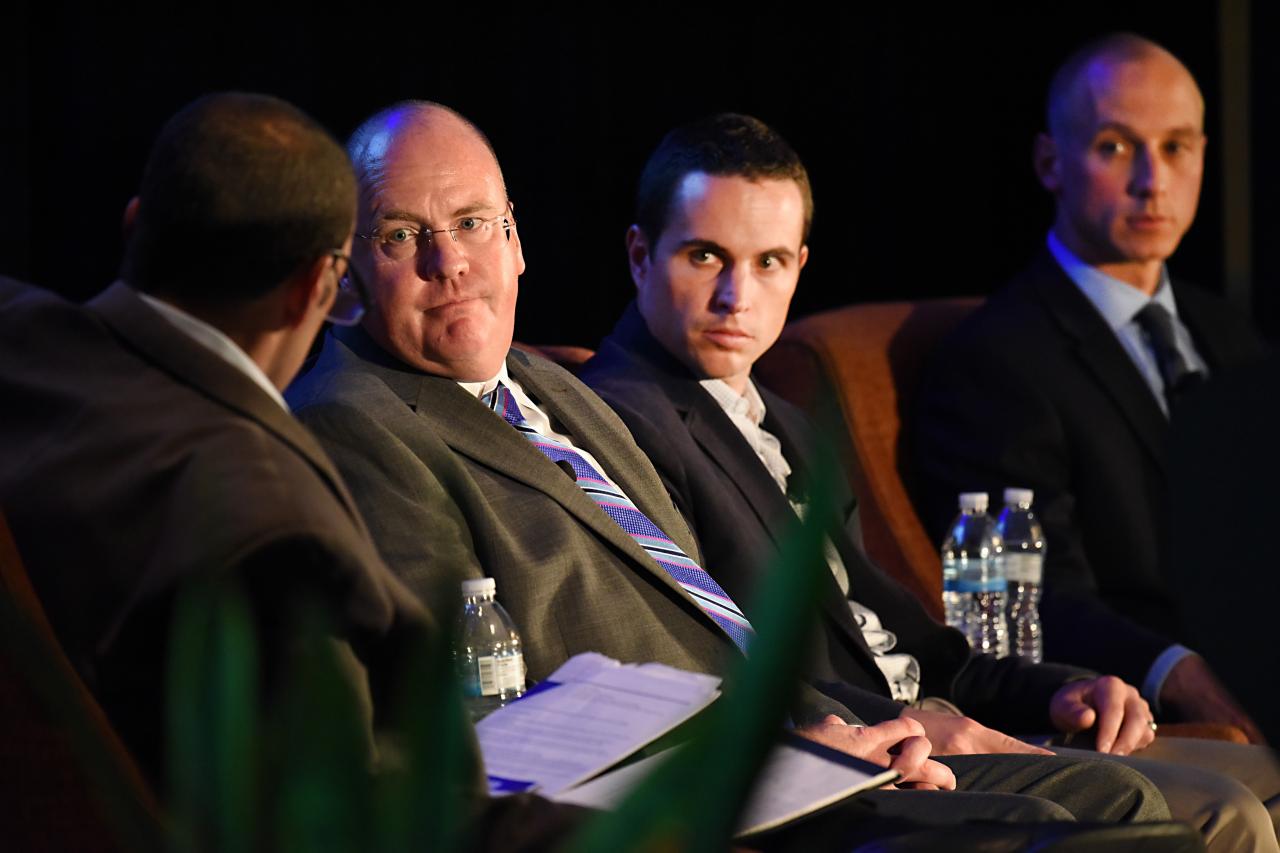July 8, 2016 Updated 7/8/2016
Email Print

Michael A. Marcotte From left, Paul Hogan, Bryan Forrest and Matt Miklosy discuss supply chain issues at the Plastics Financial Summit.
Chicago — Plastics manufacturing firms can’t afford to have any weak links in their supply chains.
That’s one of the many ways in which financial pros Bryan Forrest, Paul Hogan and Matt Miklosy spend their days. They shared a supply chain panel at the 2016 Plastics Financial Summit June 16 in Chicago.
“We look to get global [resin] grades wherever we can, so we can make consistent products across the country and across the world,” said Forrest, global supply base manager for resins at Deere & Co., the global agricultural equipment leader in Moline, Ill.
At Nelipak Healthcare Packaging in Cranston, R.I., some suppliers are focused on unit prices and costs, while others “are taking a long-term view,” according to Hogan, its chief financial officer. Nelipak also has seen consolidation in its supplier base, Hogan added, leading the firm “to try to be well positioned at all of them.”
Resin costs are a big part of the game at injection molder Dickten Masch Plastics LLC in Nashotah, Wis.
“We buy some commodity resins and a lot of engineering resins, which aren’t in a direct line with oil prices, CFO Miklosy said. “Materials are a huge part of our business, and using escalation and de-escalation clauses tied to indexes helps mitigate risk.”
Forrest added that Deere also keys resin prices off of a published index which “takes the direct impact of oil out of [pricing].” New polyethylene capacity coming online next year in North America “could be good for everyone” in the industry, he said, since PE makers “will be trying to find that resin a home at a good price.”
Proximity is a big factor for Dickten Masch. “Automotive OEMs want you near,” Miklosy said. And although the agriculture market currently is in a down part of its business cycle, Forrest said that it’s important for the firm “to invest in down time to come out stronger when things turn around.
“You don’t want to stand still and be caught flat-footed when the market starts again,” he added.



























